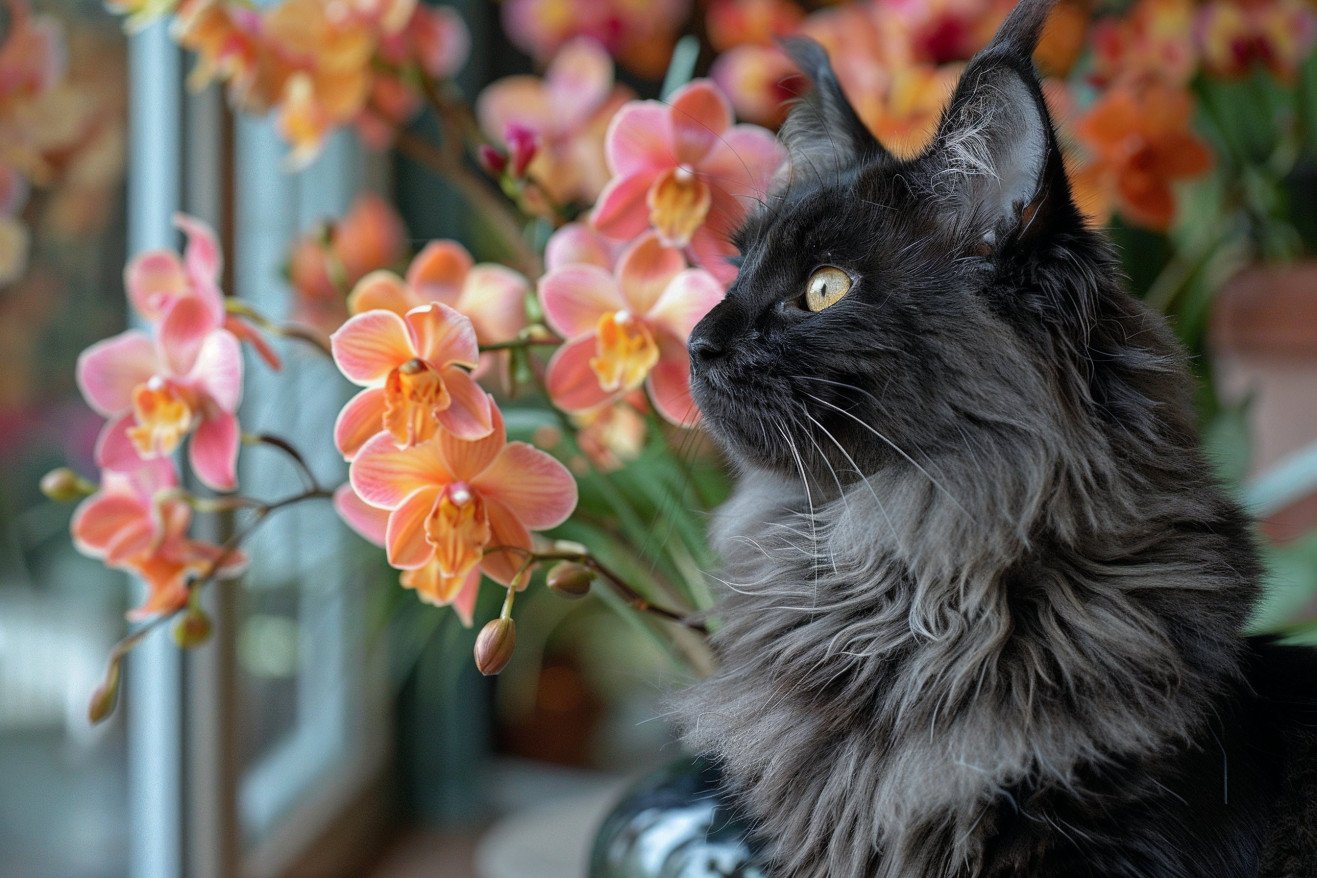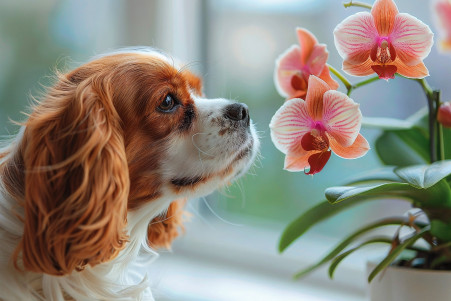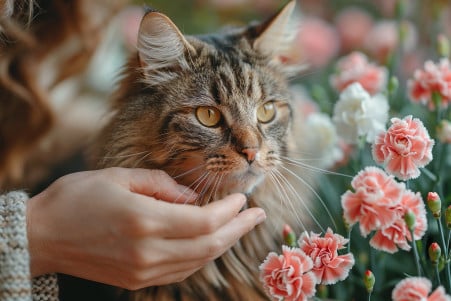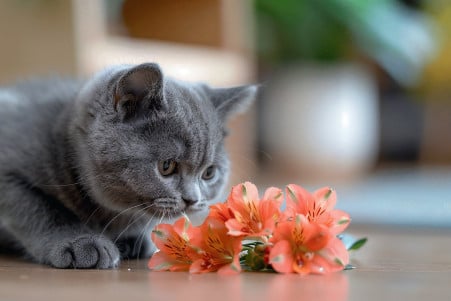Can Cats Eat Orchids? What Pet Parents Should Know
23 March 2024 • Updated 21 March 2024

While orchids can make a lovely addition to your home, especially if you're a cat parent, it's important to know if these popular flowers are safe for your feline friend. Many orchids are non-toxic and safe for cats, including some of the most popular varieties like Phalaenopsis (moth orchids) and Paphiopedilum (slipper orchids). Still, it's important to be aware of the symptoms of orchid poisoning, such as vomiting and diarrhea, and to make sure your cat can't access the plants to avoid overeating.
We'll cover the findings of research from horticulturists, veterinarians, and toxicology reports that have looked at the dangers and potential side effects of cats eating some of the most common types of orchids. This will help you better understand which orchids to be concerned about and which are great options for cat-safe plants. With this knowledge, you can enjoy your love of orchids and make sure you're creating a safe and happy home for everyone in your family.
Are orchids safe for cats?
Dealing With Conflicting Information About Orchid Toxicity
Despite the general consensus that orchids like Phalaenopsis and Paphiopedilum are safe for cats, some reputable organizations like the ASPCA have listed orchids as toxic plants that can cause vomiting, drooling, and lethargy in cats if they are eaten.
This contradiction is likely due to the different ways that the word "toxic" is being defined. Some sources have labeled orchids as non-toxic because they don't contain substances that are toxic to cats in a way that would be fatal. However, the ASPCA has labeled any plant that can cause gastrointestinal symptoms as toxic. As Dr. Felicity Moffatt notes, while orchids are "harmless options" for homes with cats, they can still cause vomiting and diarrhea if they are ingested.
Because of the differences in how reputable sources are defining toxicity, it's important for cat owners to do their own research and be cautious when bringing a new plant into their home. Looking at a variety of reputable sources, including veterinary professionals and plant toxicity databases, can help cat owners get a more well-rounded view of the potential dangers of having orchids in a home with cats.
Potential Dangers and Side Effects of Orchid Poisoning in Cats
While most orchids are not poisonous, eating large amounts of the plant can still cause stomach problems in cats. According to The Wildest, common side effects of orchid poisoning are vomiting, diarrhea, loss of appetite, and lethargy. In extreme cases, eating an entire orchid bulb could cause a bowel obstruction, which is a medical emergency.
As Dutch notes, if a cat eats a few small pieces of an orchid, they will probably have an upset stomach. However, if an entire bulb is consumed, it could cause a life-threatening bowel obstruction that will need to be treated by a veterinarian.
Cats should be watched for signs of poisoning after eating orchids and taken to the vet if they have any symptoms that don't go away or get worse, according to The Tiniest Tiger. While orchids are not toxic, it's important to make sure cats don't eat too many of them and that any stomach issues are treated as soon as possible.
Exceptions: Orchid Species That Are Toxic to Cats
While most orchids are safe for cats, there is one exception - the Cypripedium or Lady Slipper Orchid species. According to Flora, this wild orchid species is mildly toxic to pets, including cats, and should not be kept in homes with cats.
In addition to specific orchid species, the use of certain fertilizers and pesticides on orchids can also pose a greater risk of toxicity if ingested by cats. As Catster explains, fertilizers can contain substances that are toxic to cats, so it's important to use them carefully, making sure to avoid the leaves and flowers where cats can come into contact with them. If a cat ingests orchid fertilizer, it's important to seek veterinary care immediately.
If you're bringing orchids into a home with cats, it's important to make sure that the specific species and any treatments used on the plants are safe for your pets. However, by keeping these exceptions in mind and taking a few simple precautions, cat owners can safely enjoy orchids in their homes.
How to Keep Your Orchids Safe From Cats
Even if you have non-toxic orchids, you'll still want to make sure that your cat doesn't chew on or otherwise harm your plants. According to Just Add Ice Orchids, one of the best ways to do this is to keep your orchids in places that are hard for your cat to reach, like on high shelves or in hanging baskets.
You can also use deterrents like citrus-based sprays, vinegar sprays, or double-sided tape around your plants to keep your cat away, according to The Spruce and OutdoorBengal. To keep your cat from being interested in your orchids in the first place, make sure that you provide safe, cat-friendly plants like catnip or cat grass, which can help satisfy your cat's urge to chew and play with plants, according to Catster.
Finally, make sure that you're providing enough play and enrichment for your cat so that they don't get bored and decide to take out their energy on your plants, according to House Digest. By following these tips, cat owners can enjoy their orchids while making sure that their cats stay safe and happy.
Final Considerations: Orchids and Cat Safety
Most of the orchids that are commonly kept as houseplants are non-toxic and safe for cats as long as you take the proper precautions. However, it's still important to watch for signs of gastrointestinal upset in cats who have ingested orchids and to get them medical attention if they show any symptoms.
By learning about specific types of orchids, using deterrents, and offering safe alternatives, cat owners can keep their pets safe while enjoying these lovely plants. With a little planning and effort, cats and orchids can be part of the same household without any problems.


